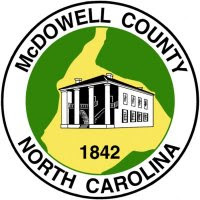skip to main |
skip to sidebar
 Winter is a good time to lime. Lime increases alkalinity. pH will stay fairly stable at higher alkalinities. Also, alkalinity reduces the toxicity of some chemicals in water. If you have to treat with copper sulfate this Spring or Summer, copper sulfate is less toxic at higher alkalinities.
Winter is a good time to lime. Lime increases alkalinity. pH will stay fairly stable at higher alkalinities. Also, alkalinity reduces the toxicity of some chemicals in water. If you have to treat with copper sulfate this Spring or Summer, copper sulfate is less toxic at higher alkalinities.
Treating your pond with salt also is recommended before stocking your pond with a new load of fish. Fish are stressed during harvest and transport. Salt acts to reduce this stress.
If your pond has little inflow and outflow, it may be necessary to break the ice. With a pond that has little inflow, most of the oxygen in water is resulting from contact with the air during winter. If the pond surface is completely frozen for an extended period, this can act as a barrier to replenishing the oxygen in the water. This is especially true if there is snow covering the ice. Most ponds have constantly flowing water so this is usually not a problem.
 As of July 1, 2005, anyone interested in stocking inland, public fishing waters with fish, mollusks, or crustaceans must obtain a stocking permit issued by the Wildlife Commission. The purpose of this permit is to protect native, or legally established aquatic species from the potentially damaging effects of unauthorized stockings. Fish stocked into public waters have the potential to escape into adjacent waters and create problems for existing aquatic communities by feeding on eggs, fry, or adults of existing fishes. They may compete for food and habitat. Stockings may also introduce diseases and parasites, and possibly interbreeding.
As of July 1, 2005, anyone interested in stocking inland, public fishing waters with fish, mollusks, or crustaceans must obtain a stocking permit issued by the Wildlife Commission. The purpose of this permit is to protect native, or legally established aquatic species from the potentially damaging effects of unauthorized stockings. Fish stocked into public waters have the potential to escape into adjacent waters and create problems for existing aquatic communities by feeding on eggs, fry, or adults of existing fishes. They may compete for food and habitat. Stockings may also introduce diseases and parasites, and possibly interbreeding.
The only waters not affected by this rule are private ponds, which by statute is defined as bodies of water arising within and lying wholly upon the lands of a single owner or group of joint owners or tenants in common, and from which fish cannot escape, and into which fish of legal size cannot enter from public waters at any time.
Since most ponds in western North Carolina are built by impounding streams, they are considered public waters. The term public does not imply that the general public has the right to fish these waters without landowner permission. It means that the waters flowing through the pond are contiguous with adjacent streams.
There is NO charge from this permit. You can find out how to apply by visiting www.ncwildlife.org/fishing/fish_stocking_permit.htm or by calling 919-707-0226. I can also help you getting an application for the stocking permit.
 Two water quality testing workshops will be offered on Tuesday, November 24 and Thursday, December 10. The workshop on November 24 will be at Willie's Fish Lake, 537 Casstevens Road, Mount Airy. The workshop on Thursday, December 10 will be at Creekside Carp & Catfish Lakes, 2991 Sam Houser Road, Vale. Both workshops will start at 1:00pm and last until 3:00pm. Basic water quality parameters will be reviewed. Then you will have hands-on experience of testing water quality using chemical test kits. If you have testing kits or equipment, feel free to bring them. If you have a recreational pond, farm pond, or fee-fishing pond, this workshop is for you.
Two water quality testing workshops will be offered on Tuesday, November 24 and Thursday, December 10. The workshop on November 24 will be at Willie's Fish Lake, 537 Casstevens Road, Mount Airy. The workshop on Thursday, December 10 will be at Creekside Carp & Catfish Lakes, 2991 Sam Houser Road, Vale. Both workshops will start at 1:00pm and last until 3:00pm. Basic water quality parameters will be reviewed. Then you will have hands-on experience of testing water quality using chemical test kits. If you have testing kits or equipment, feel free to bring them. If you have a recreational pond, farm pond, or fee-fishing pond, this workshop is for you.
Registration is required. Call Cheryl Mitchell or Molly Sandfoss at 828-652-7874. If you have any questions, please call.
A Forage Weeds/Pond Weeds Workshop is scheduled for August 18 at 1:00 pm at the North Carolina Cooperative Extension Service-Wilkes County Center in Wilkesboro, North Carolina. The Wilkes County Center is located at 201 Curtis Bridge Road, Suite A.
Learn to identify weeds and control methods. Bring in your weed samples. Also herbicides in manures will be highlighted. Pesticide credits have been applied for.
There is no registration fee, but please register by calling Donna Bumgarner @ 336.651.7331 or Cheryl Mitchell @ 828.652.7874.




